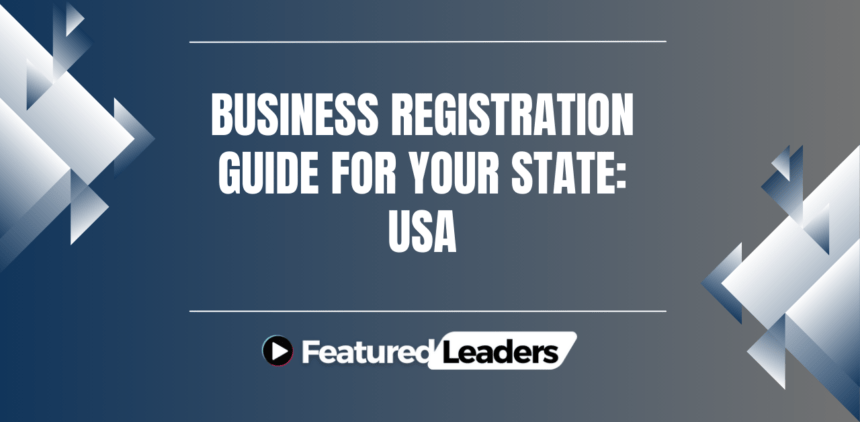Are you thinking of starting a business in your state? Congratulations! Taking this bold step towards entrepreneurship is an exciting endeavor. However, before you can dive into your entrepreneurial journey, it’s important to understand the business registration process in your state.
Registering a business involves following specific steps and meeting legal requirements. It may seem overwhelming at first, but don’t worry! We’ve got you covered with this comprehensive guide that will walk you through the entire process, from choosing a business structure to obtaining necessary licenses and permits.
By the end of this guide, you’ll have all the knowledge and resources you need to confidently register your business and set yourself up for success. So, let’s get started on this exciting journey together!
- Registering a business in your state involves a specific process and legal requirements.
- Choosing the right business structure is an important first step.
- Deciding on a location and registering your business name are crucial.
- Obtaining an Employer Identification Number (EIN) is necessary for various business activities.
- Each state has its own registration requirements and processes.
Understanding Business Structures
When it comes to registering a business, choosing the right business structure is a crucial decision. The business structure you select will have significant implications on your taxes, liability, and day-to-day operations. Common business structures include sole proprietorship, partnership, limited liability company (LLC), and C-Corporation. Let’s take a closer look at each one:
Sole Proprietorship
An individual running a business on their own, without any legal distinction between the business and themselves, is operating as a sole proprietor. This is the most common and simplest business structure, offering complete control and easy formation.
Partnership
A partnership is formed when two or more individuals join forces to carry out a business with the goal of making a profit. There are two main types of partnerships: general partnerships, where partners share equal responsibility and liability, and limited partnerships, where some partners have limited liability.
Limited Liability Company (LLC)
An LLC is a hybrid business structure that combines the limited liability protection of a corporation with the flexibility and tax benefits of a partnership. It offers personal asset protection and reduces the risk of personal liability for business debts and lawsuits.
C-Corporation
A C-Corporation is a separate legal entity that is owned by shareholders. It provides limited liability protection to its owners and allows for the raising of capital through the issuance of stocks. C-Corporations are subject to double taxation, where both the corporation and its shareholders are taxed on profits.
Choosing the right business structure requires careful consideration of your specific needs, goals, and long-term plans. It’s a decision that should be based on consultation with legal and tax professionals to ensure you make an informed choice that suits your business.
Each business structure has its own advantages and disadvantages. It’s crucial to weigh factors such as personal liability, taxation, and operational flexibility before making your decision. Consulting with professionals will help you navigate the complexities and choose the right business structure for your entrepreneurial journey.
| Business Structure | Tax Implications | Liability | Operations |
|---|---|---|---|
| Sole Proprietorship | Reported on individual tax return | Unlimited personal liability | Complete control |
| Partnership | Partners report their share of profits and losses on individual tax returns | Varies depending on partnership type | Shared decision-making |
| LLC | Can choose to be taxed as a sole proprietorship, partnership, or corporation | Limited personal liability | Flexible management structure |
| C-Corporation | Corporation files its own tax returns | Limited personal liability | Separation of ownership and management |
Understanding the implications of each business structure is the foundation for making an informed decision that aligns with your goals and protects your assets. Take the time to educate yourself and seek professional guidance to ensure a solid foundation for your business.
Choosing a Location
Once you’ve selected a business structure, it’s time to choose a location for your business. The right business location can play a crucial role in the success of your venture.
When considering a location, you have two options: a physical address or a virtual location. A physical address provides a permanent base for your operations, where customers can visit and you can store inventory. On the other hand, a virtual location allows you to establish a business presence without the need for a physical storefront.
When choosing a physical address, consider the specific needs of your business. Factors to consider include proximity to suppliers, target market, accessibility, and local amenities. For example, a retail store might benefit from a location in a high-traffic area, while a manufacturing facility may require proximity to transportation hubs.
If a virtual location suits your business model, you can use services that provide a registered address for your business. This address can be used for receiving important documents and ensuring compliance with tax filings.
Importance of a Business Bank Account
Alongside choosing a business location, it’s important to consider opening a business bank account. Separating your personal and business finances is essential for accurate financial record-keeping and tax filings.
Having a dedicated business bank account allows you to keep track of income and expenses related to your business, making it easier to manage cash flow and prepare financial statements. It also adds a level of professionalism to your business and can make it easier to secure business loans or credit.
When choosing a business bank account, consider factors such as fees, account features, and customer service. Research different banks and financial institutions to find the one that best meets your business needs.
Opening a business bank account also simplifies tax filings by providing a clear separation between personal and business income and expenses. This separation makes it easier to calculate and report taxes accurately, reducing the risk of errors and potential audits.
Registering Your Business Name
Registering your business name is a crucial step in the registration process. When starting a business under a name that is different from your own, you may need to file a “doing business as” (DBA) name. This allows you to operate your business legally under a name that is distinct from your personal name.
Before finalizing your business name, it’s important to check its availability to ensure that another business isn’t already using the same name. This will help you avoid potential legal issues down the road. Additionally, considering trademark protection for your business name can provide further legal safeguarding and prevent others from using your name or brand without permission.
“Choosing a unique and memorable business name is essential for establishing your brand identity and ensuring long-term success.”
By taking the necessary steps to register your business name and protect it through a DBA or trademark, you can establish a strong foundation for your brand and ensure that your business operates legally and securely.
Choosing a Business Name: Tips & Guidelines
- Make sure the name reflects your business’s values, offerings, and target audience.
- Ensure the name is easy to remember and pronounce.
- Avoid using generic terms that may limit your business’s uniqueness.
- Consider the availability of domain names and social media handles associated with your chosen name.
- Consult legal professionals to assess trademark availability and protect your brand.
Now, let’s take a look at the step-by-step process of registering your business name.
| Step | Description |
|---|---|
| 1 | Choose a unique and meaningful name for your business. |
| 2 | Search the business name availability in your state’s online database or the Secretary of State’s website. |
| 3 | If the name is available, reserve it to prevent others from taking it before you complete the registration process. |
| 4 | Determine if you need to file a DBA or fictitious name registration if you’re operating under a name other than your own. |
| 5 | Research and consider trademark protection for your business name. |
| 6 | Complete the necessary registration forms and submit them to the appropriate government agency. |
Obtaining an Employer Identification Number (EIN)
When it comes to running a business, an Employer Identification Number (EIN) is a crucial requirement. Similar to a Social Security Number for individuals, an EIN serves as a unique identifier for your business. Obtaining an EIN is essential for various business activities, including paying employees, filing tax returns, opening a business bank account, and even obtaining loans.
To obtain an EIN, you will need to register with the Federal Internal Revenue Service (IRS). The registration process can be completed conveniently online, by fax, or by mail. It’s important to gather all the necessary information and documents before starting the registration process to ensure a smooth and hassle-free experience.
Once you have successfully obtained your EIN, it’s time to update your business records and ensure that your tax filings, payroll, and financial activities are in compliance with IRS regulations. Having an EIN not only streamlines your business operations but also helps establish your business’s credibility and professionalism.
Whether you’re a sole proprietor, partnership, LLC, or corporation, having an EIN is a vital step in managing your business’s financial affairs. Make sure to keep your EIN secure and readily accessible when dealing with various financial institutions and government agencies that may require it.
Benefits of Obtaining an EIN:
- Facilitates accurate tax reporting and filing
- Allows you to hire employees and process payroll
- Enables you to open a business bank account
- Provides a unique identifier for business transactions
- Ensures compliance with IRS regulations
By obtaining an EIN, you’ll have the necessary tax ID to navigate various financial matters smoothly. It’s a valuable asset that grants your business legitimacy and helps establish a strong foundation for long-term success.
State-Specific Registration Requirements
When registering a business, it’s crucial to understand that each state has its own set of requirements and processes. These state-specific regulations must be followed to ensure a smooth and legally compliant registration process. Researching and familiarizing yourself with your state’s specific guidelines is essential to avoid any potential issues.
State registration processes may vary in terms of fees, forms, and additional documentation needed. By gaining a clear understanding of these requirements, you can ensure that you provide all the necessary information and meet all obligations efficiently. This will save you time, money, and potential hassles.
Whether you’re forming a limited liability company (LLC), sole proprietorship, partnership, or any other business structure, it’s crucial to comply with the state requirements. Ignoring or overlooking these specifications can lead to delays in the registration process or even legal consequences down the line.
To illustrate the variances among states, here’s a comparison of the registration requirements of three different states:
| State | Registration Fees | Required Forms | Additional Documentation |
|---|---|---|---|
| California | $75 for LLC, $70 for Corporation | Articles of Organization (LLC), Articles of Incorporation (Corporation) | Statement of Information, Bylaws, Operating Agreement |
| Texas | $300 for LLC, $300 for Corporation | Certificate of Formation (LLC), Certificate of Formation (Corporation) | Operating Agreement, Bylaws, Shareholder Agreement |
| New York | $200 for LLC, $125 for Corporation | Articles of Organization (LLC), Articles of Incorporation (Corporation) | Operating Agreement, Bylaws, Shareholder Agreement |
By examining the table above, you can see the differences in registration fees, required forms, and additional documentation across different states. This emphasizes the importance of researching and understanding your specific state’s requirements.
Remember, compliance with state-specific business registration requirements ensures that your business operates legally and with full transparency. It also establishes a strong foundation for future growth and success.
Now that you have a clear understanding of state-specific registration requirements, you can confidently proceed with the registration process in your particular state.
Applying for Licenses and Permits
Once you have completed the business registration process and chosen a location for your business, it’s important to ensure that you have all the necessary licenses and permits to legally operate in your industry and location. Different industries have specific requirements, and it’s crucial to understand and comply with them to avoid any legal issues or penalties.
The U.S. Small Business Administration (SBA) provides a valuable resource for searching and identifying the licenses and permits required for your specific business and location. The SBA website offers a comprehensive database that allows you to search by industry, business type, and location to find the specific licenses and permits you need to acquire.

By visiting the SBA website and utilizing their license and permit search tool, you can save time and ensure you are in compliance with all industry-specific requirements. This tool provides you with detailed information about which licenses and permits are needed, how to apply for them, and any associated fees or inspections that may be required.
Industry-Specific Requirements
Each industry has its own set of regulations and requirements when it comes to obtaining licenses and permits. Some common examples include:
- Health and safety permits for businesses in the food and beverage industry
- Professional licenses for doctors, attorneys, or other specialized professionals
- Environmental permits for businesses that have an impact on the environment
- Building permits and zoning approvals for construction and real estate-related businesses
It’s important to research and understand the industry-specific requirements that apply to your business. By staying informed and complying with these regulations, you can ensure that your business operates legally and avoids any disruptions or fines.
Obtaining Licenses and Permits
Once you have identified the licenses and permits required for your business, the next step is to start the application process. The specific process will vary depending on your industry and location, but in general, it involves:
- Gathering the necessary documentation and information
- Completing the application forms
- Paying any associated fees
- Scheduling and passing any required inspections
Be sure to check the specific requirements for each license or permit you are applying for, as they may have additional steps or documentation needed. It’s also a good idea to start the application process well in advance to allow for any processing time or unexpected delays.
Staying up to Date
“Obtaining the necessary licenses and permits is just the initial step. To legally operate your business, it’s important to stay up to date with ongoing compliance requirements. This means renewing your licenses and permits as required, submitting any necessary reports or filings, and staying informed about any changes in regulations that may affect your business.”
By staying vigilant and proactive in meeting your compliance responsibilities, you can ensure that your business continues to operate within the legal framework and remains in good standing with regulatory authorities.
| Licenses and Permits | Industry | Issuing Authority |
|---|---|---|
| Food Service Permit | Restaurant and food service | Department of Health |
| Professional License | Medical, legal, and other professional services | State Licensing Board |
| Environmental Permit | Manufacturing and industrial businesses | Environmental Protection Agency (EPA) |
Staying Compliant
Registering your business is just the first step. It’s crucial to stay compliant with ongoing business maintenance requirements. This includes filing annual reports, renewing licenses and permits, and staying up to date with any changes in regulations and tax laws.
“Compliance is not a one-time task, but an ongoing commitment to meet legal and regulatory obligations. By maintaining compliance, your business can operate smoothly and avoid potential penalties or legal issues.”
One key aspect of staying compliant is filing annual reports. These reports provide updated information about your business to the relevant authorities. They typically include details such as your business activities, financial statements, and any changes in ownership or management. Failing to file these reports on time may result in fines or even the dissolution of your business.
Additionally, it’s essential to renew licenses and permits as required by your industry and location. These licenses and permits grant you the legal authority to conduct specific business activities, such as selling alcohol or operating a food establishment. Failure to renew them can lead to the suspension or revocation of your permits, hindering your operations.
Furthermore, keeping abreast of changes in regulations and tax laws is crucial for remaining compliant. Laws and regulations can evolve over time, and it’s your responsibility to ensure that your business adapts accordingly. This may involve staying informed through government websites, attending industry conferences, or consulting with legal and accounting professionals.
Staying compliant with ongoing business maintenance requirements is vital for the long-term success and sustainability of your business.
Benefits of Compliance:
- Ensures legal operation
- Prevents penalties and fines
- Builds trust with customers and stakeholders
- Maintains a positive business reputation
- Provides a competitive advantage
Penalties for Non-Compliance:
| Violation | Potential Penalties |
|---|---|
| Failure to file annual reports | Fines, business dissolution, loss of liability protection |
| Operating without required licenses or permits | Fines, suspension/revocation of permits, forced closure |
| Non-compliance with tax laws | Fines, interest on outstanding payments, legal action |
Staying compliant with ongoing business maintenance is a shared responsibility. Designate someone within your organization to oversee compliance efforts, or consider outsourcing to a professional who specializes in compliance management.
Resources and Support
Starting a business can be challenging, but you don’t have to navigate the registration process alone. There are numerous resources and support systems available to help you through every step. Take advantage of these valuable sources to ensure a smooth and successful business registration experience.
Small Business Administration (SBA)
The Small Business Administration offers a wealth of information and assistance for entrepreneurs. Their website provides access to helpful guides and tools, including business plan templates, financing options, and expert advice. You can also find local SBA offices in your area that provide personalized guidance and support for business owners.
Local Chambers of Commerce
Your local Chamber of Commerce is an excellent resource for connecting with other business owners and accessing valuable support services. Chambers of Commerce often offer networking events, educational workshops, and mentorship programs that can help you navigate the business registration process and establish meaningful contacts within your industry.
Professional Service Providers
Consider seeking assistance from professional service providers who specialize in business registration and related areas. Legal consultants, accountants, and business advisors can provide expert guidance, ensuring you comply with all legal requirements, understand tax obligations, and make informed decisions about your business structure. They can also help streamline the registration process, saving you time and reducing the risk of costly mistakes.
“Enlisting the help of experienced professionals can significantly ease the burden of business registration and allow you to focus on what you do best – running your business.”
Online Communities and Forums
Joining online communities and forums dedicated to entrepreneurship can provide valuable support from fellow business owners who have gone through the registration process. Platforms like Reddit’s r/smallbusiness and LinkedIn Groups offer spaces for asking questions, sharing experiences, and accessing industry-specific insights and resources.
Industry Associations
Consider joining relevant industry associations that can provide industry-specific resources, insights, and support. These associations often offer educational events, newsletters, and access to professionals who can guide you through the unique challenges of your specific niche. Networking with other professionals in your industry can also open doors to potential partnerships, collaborations, and business opportunities.
Business Registration Checklist
| Tasks | Description |
|---|---|
| Research Business Structures | Understand the various business structures available and choose the one that best suits your needs. |
| Register Your Business Name | Check the availability of your chosen business name and register it with the appropriate authorities. |
| Obtain an EIN | Apply for an Employer Identification Number (EIN) from the IRS, which is necessary for tax purposes. |
| Apply for Licenses and Permits | Determine the licenses and permits required for your specific business and apply for them. |
| Register with State and Local Agencies | Complete any necessary registrations with state and local agencies to meet legal requirements. |
| Set Up Business Bank Account | Open a separate bank account for your business to keep your personal and business finances separate. |
| Stay Compliant with Ongoing Requirements | Regularly review and fulfill ongoing requirements, such as filing taxes and renewing licenses. |
| Seek Professional Guidance | Consult with legal, accounting, and business advisors to ensure compliance and make informed decisions. |
By utilizing these resources and support systems, you can navigate the business registration process with confidence, save time, and set your business up for success.

Conclusion
Registering a business in your state is an essential step to legally establish your business. This comprehensive guide has provided you with a step-by-step business registration process. By following this guide, you will have a clear understanding of the necessary steps, including choosing the right business structure, obtaining the required licenses and permits, and ensuring ongoing compliance.
Remember, registering a business involves various legal and administrative requirements, and it’s always a good idea to seek personalized guidance and support from professional advisors. They can provide expert advice tailored to your specific needs and help navigate any complexities that may arise during the registration process.
Starting a new business can be an exciting and rewarding endeavor. By taking the time to register your business properly, you are building a strong foundation for its success. Use this guide as a valuable resource to ensure a smooth and compliant registration process, and get ready to embark on your entrepreneurial journey with confidence.
FAQ
How do I register a business in my state?
To register a business in your state, you need to follow a specific process. This includes choosing a business structure, selecting a location, registering your business name, obtaining an Employer Identification Number (EIN), and meeting state-specific registration requirements.
What are the different business structures and how do I choose the right one?
Common business structures include sole proprietorship, partnership, limited liability company (LLC), and C-Corporation. Each structure has its own implications for taxes, liability, and operations. You should carefully consider your business needs and consult with a professional to choose the right structure.
What should I consider when choosing a location for my business?
When choosing a location, you should consider factors such as tax filings, accessibility, zoning regulations, and convenience. It’s also important to open a business bank account to manage your finances effectively.
How do I register my business name?
If you’re operating under a name that isn’t your own, you may need to file a “doing business as” (DBA) name. It’s important to check the availability of your chosen name and consider trademark protection. You can consult with a professional or research the specific regulations in your state for the registration process.
What is an EIN and how do I obtain one?
An Employer Identification Number (EIN) is a unique identifier for your business that is required for various purposes such as paying employees, filing tax returns, opening a business bank account, and obtaining loans. You can obtain an EIN by registering with the Federal Internal Revenue Service (IRS) online, by fax, or by mail.
Are there state-specific requirements for business registration?
Yes, each state has its own requirements and processes for registering a business. It’s important to research and understand the specific regulations and requirements of your state, including fees, forms, and any additional documentation needed for registration.
What licenses and permits do I need to legally operate my business?
Depending on your industry and location, you may need to obtain certain licenses and permits to legally operate your business. The U.S. Small Business Administration provides a helpful resource for searching and identifying the necessary permits and licenses for your specific business and location.
How do I stay compliant with ongoing business maintenance requirements?
To stay compliant, you need to file annual reports, renew licenses and permits, and stay up to date with any changes in regulations and tax laws. It’s important to consistently monitor and maintain your business’s compliance to avoid penalties or legal issues.
Where can I find resources and support for business registration?
There are resources available to help you throughout the business registration process. You can utilize resources like the Small Business Administration, local chambers of commerce, and professional service providers for guidance and assistance.
What is the importance of registering a business in my state?
Registering a business in your state is a crucial step towards legalizing and establishing your business. It ensures that you comply with state and federal regulations, allows you to access certain benefits and protections, and enables you to operate your business legally.






